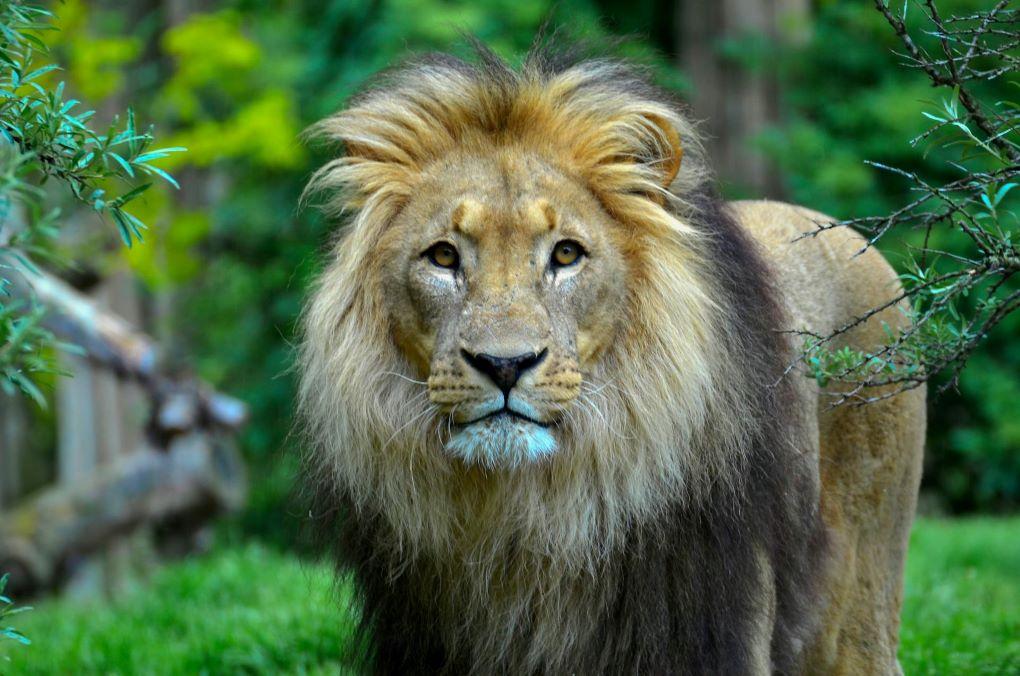Nothing beats the thrill of hunting one of the most dangerous predators worldwide. And when lion hunting Africa is the destination of choice, with the most wild lions worldwide.
Lion hunting in South Africa has always symbolized the pride, hard work, and passion of those who take on the challenge of an African hunt. Game hunting in South Africa began as a way of sustenance and provision. But over thousands of years, it has morphed into a multi-billion Rand industry that supports thousands of jobs across various sectors and injects much-needed investment into the economy.
However, lion hunting Africa safaris are now facing a chopping block, with government and conservationists calling for the imminent closure and ban of canned lion hunting in South Africa. What has suddenly spurred this decision, what are the motivating factors in this move, and what will the consequences be for a country reliant on its highly controlled game hunting industry…?
[DYNAMIC-BLOGTABLEOFCONTENT]
Key Takeaways
- When lion hunting Africa is the destination of choice, with the most wild lions found on the dark continent, specifically in sub-Saharan Africa. This apex predator has been Canned lion hunting in South Africa is nothing new, with calls to ban it beginning more than 30 years ago.
- Why is canned lion hunting so popular, versus free-range lion hunting? Canned lion hunting has more availability, plus the price is more affordable than a free-range lion hunt.
- Game hunting bodies have set their views on the matter, while the South African government finds itself between conservationists and role-players who bring in millions of Rands worth of tourism and business income.
- The government has signed the Policy Position, with the crux of this policy to end not only captive lion hunting in South Africa but also to end the captive breeding of lions and close facilities involved in this practice.
- With more than 350 establishments involved in the breeding and hunting captive lions, there are concerns surrounding the financial and human impact.
- What will happen to South Africa’s canned lions? There are talks of sanctuaries, euthanasia, rewilding the animals, as well as a large number of lion hunts at low prices…none of which seem to tick the boxes in terms of an outright solution.
- No deadlines have been made for decisions as yet, and while the deadline is unclear, the future of the industry and these animals remains in the dark.
The South African Hunt for Canned Lions
Hunting lions in South Africa in a “canned” environment is nothing new. Calls for the banning of this industry began around 30 years ago when the first investigative pieces were written covering this type of African hunting safari available across the continent.
Unlike other aspects of hunting lions in South Africa, the canned breeding/hunting industry is not governed by national laws or regulations. Provinces specify the rules and standards used to control and measure the industry, meaning that across the country, the canned lion industry is in the hands of the provincial legislature. With each of these provinces holding their own yardsticks, it’s easy to see why there are those up in arms about the control or lack thereof surrounding the practice.
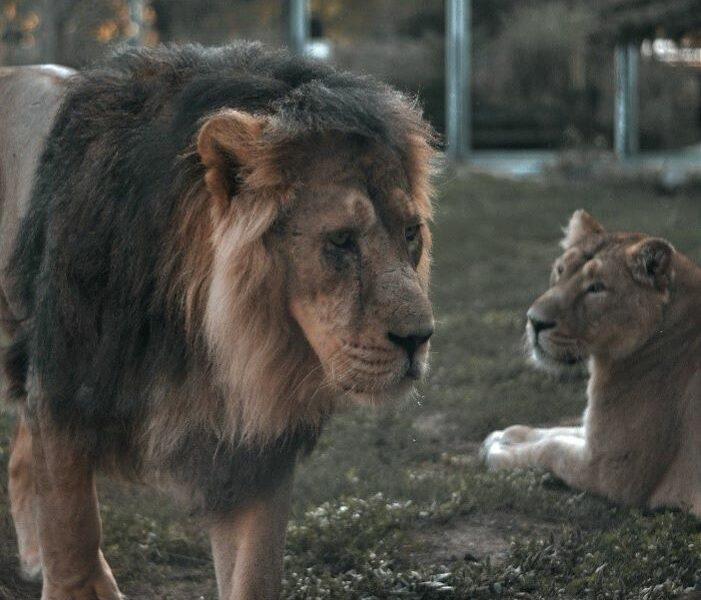
Does Canned Hunting hold a Candle to Ethical Principles: Why is this South African Hunting Safari Option Appealing?
It can be assumed that any game hunting participant worth their salt holds a certain moral compass and is aware of the rights and wrongs involved when lion hunting in South Africa. But when looking at fair chase vs canned hunting, why do the numbers and popularity lean towards the latter? If the industry is so morally flawed and ethically wrong, why do hunters choose to partake in this practice…
One main factor is Availability
Wild lion hunting in South Africa is strictly controlled and a limited number of wild lion tags are given each year, on average when it comes to a wild lion South African hunt, the yearly quota is around 5. The free–range lion population in South Africa numbers around 3,500 with a further 2,800 found in areas of conservation where no game hunting is allowed. With free–roaming lion numbers dropping every year due to factors like habitat loss, encroachment from competition species (hyenas being a key competitor), and illegal poaching; it stands to reason that these few wild lions of South Africa are kept on a tight leash in terms of hunting opportunities.
Conversely, the captive lion population in South Africa stands at around 10,000 with no set quotas or tag limits. These South African hunting safaris are therefore more widely available and easier to find and book.
The other main factor is Cost
Hunting lions in South Africa is not a cheap thrill, especially the free-roaming kind. With wild lion hunts starting at around $50,000 and reaching well over $100,000 depending on the trophy quality and quota availability, it’s no wonder the appeal of a more “economic” hunt can fuel the decision-making. Captive hunts start at around $20,000 for males and prices for females can begin with the price of $3,500.
While most hunters consider trophy quality as the main factor, in the world we live in, the economic factor and lack of waiting list can be a big driving force in decision making.
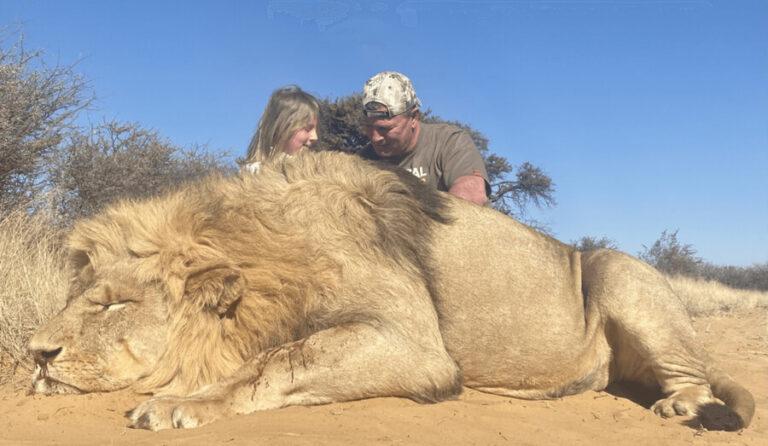
In the name of Hunting Lion in South Africa: Politics and Conservation
The most recent development in the matter of captive lions and the South African hunt is the approval of a Policy Position submitted to the government by Barbara Creecy, South Africa’s Environmental Minister. This action has effectively put into place the methods and measures to be considered in the phasing out of the captive lion hunting industry and other “exploitative practices” like tourism involving activities like lion petting and lion walks. This Policy Position aims to put South Africa in a position at the frontline of conservation action and make it known that game hunting industries such as the captive lion trade will not be accepted.
The view of Game Hunting Bodies on Hunting Lion in South Africa through Captive Practices
Prominent associations like the Professional Hunters Association of South Africa (PHASA) and Safari Club International (SCI) have made their stance on captive South African hunts very clear. PHASA rejects the practice of canned lion hunting and does not distinguish between the ideas of canned and captive lion hunting in South Africa. The SCI body, since 2021, does not allow for the advertising of captive lion hunting at their expos and also rejects record book applications involving captive lions. They also ask that any chapters under their banner refrain from hosting auctions or raffles for hunting lion in South Africa that involve captive lions.
Where does the Government stand on the matter of Captive Lion Hunting in South Africa?
Politics is a fickle matter, to make one side happy the other side tends to end up disappointed and even angry. In this matter, our government finds itself between conservationists and role-players who bring in millions of Rands worth of tourism and business income.
At this point, the government has nudged the ball into a slow roll by signing the Policy Position, how fast and how far this ball will go remains to be seen. Looking at the history of government action in South Africa, there may still be time for this to be challenged and the process halted.
What is the Shutdown Plan? How do they see an end to this game hunting industry?
The crux of this policy is to end not only captive lion hunting in South Africa but also to end the captive breeding of lions and close facilities involved in this practice. The policy also hopes to outline measures that can be used to protect wild lions from falling victim to illegal and damaging activities like poaching and to increase the habitat space available for South Africa’s wild-roaming lion population.
Do we need to “get off the high horse?”
South Africa is not the only country in the world home to game hunting and other activities that potentially exploit the animals that call it walk its lands. Regardless of destination and industry, gray areas are known to exist, and as long as these do, so will those who choose to err on the side of questionable practices and substandard care of the animals under their supervision.
When it comes to hunting lion in South Africa, especially the captive kind, there are far too many factors and considerations at play for there to be a singular judgment or decision. All sides and stories need to be considered and investigated if necessary, and this needs to be done objectively and without personal beliefs or opinions.
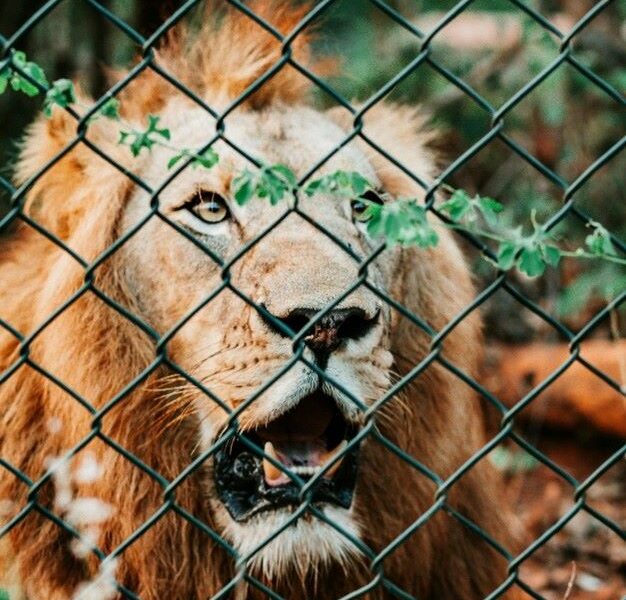
Closing the Cages and Closing the Doors: Counting the Cost of losing this Hunting Safari and What Could be Done?
South Africa is home to around 350 facilities involved in the breeding and hunting of captive lions, so to see this industry close its doors will no doubt bring about concerns surrounding the financial and human impact. To shut down an industry this large will undoubtedly lead to a substantial loss of employment and tourist income. Our country’s Department of Forestry, Fisheries, and the Environment has already drafted plans to halt the formation of new breeding and hunting facilities until this matter can be resolved.
The South African Predator Association (SAPA), a regulatory body with numerous lion farms under it, is stuck in the middle. On the one hand, it has vowed to assist the government with the closure of the industry and its practices; while on the other, its members are preparing to fight tooth and nail for the business that has become their bread and butter, not to mention a contributor of hundreds of millions in Rand value to South Africa’s economy.
For all parties involved, the point of upset is the suggestion that the industry can continue to exist within a strong framework of regulations and standards. Conservationists argue that this ideal solution is just that, an ideal; while both members of SAPA and the broader industry argue that government and other involved bodies are not doing enough to root out the problem facilities who are bringing the industry into disrepute.
What will happen to South Africa’s “Caged” Lions?
Should the government get its way, and the practice of hunting lion Africa safaris through captive hunts becomes outlawed and shut down, what will happen to the 10,000+ population of caged lions?
Rewilding programs
Lions in this industry have never known the wild. They have never had to actively hunt the African plains for their meal and they no doubt, do not have the same immunity and resiliency as their wild counterparts. To rewild these animals seems almost futile, how do you teach an animal to be an animal when they don’t know any better?
Exercising Euthanasia
One of the controversial topics of solution is voluntary euthanasia of the captive lion population. A measure one could say is almost as cruel as the industry being criticized. No animal deserves to have its life ended because they have become a burden, a loose end, or simply because we don’t know what to do with them.
This practice would also open the doors for the illegal trade and smuggling of lion bones, skin, and teeth to other African countries and the East where they are used as status symbols, tools of witchcraft, or ingredients in traditional medicine.
Seeking Sanctuary
To rehome South Africa’s captive lions would be a massive undertaking. A main factor to bear in mind is the potential for genetic issues in lions who may have a potential point of inbreeding in their ancestry. This can wreak havoc on established genetic lines and lead to physical mutations or health disorders that can threaten the entire population of an area.
This option will also incur further and higher costs to the reserves and conservancies taking in these big cats. The costs of maintaining the land, ensuring security, and the health and wellbeing of lions run high; and further increasing this financial demand could have dire consequences for those who simply try and do a good deed.
A Black Friday
Up there with euthanasia as a controversial option, is what could essentially be an “open season” on the captive lion population or to put it simply; a culling of the herd. This option could see hunters being offered hunts at massively reduced costs or the lion farmers themselves being tasked with taking the lives of the animals they have raised and cared for.
Black Manes and the Black Market: The Potential for further illegal activity
If there’s one thing we can understand, it’s that the tighter the controls around something, the craftier the criminals become. Animal poaching is no different; while the South African hunting safari is often blamed for the decline in lion numbers, the reality is that these beasts are being targeted by poachers for profit.
So how will ending the captive side of hunting lions in South Africa play into the growing poaching trade?
Firstly, increasing the population of lions in a concentrated area, like a sanctuary or game farm, raises the odds of that area becoming a poaching target. And in that instance, the poaching of lions may lead to spinoff poaching, putting other species in the area at risk. Given the size of South Africa’s captive lion population, this could lead to an “all the eggs in one basket” scenario as the number of reserves or sanctuaries equipped to take on this sudden increase in population is not promising.
Another reality of this scenario is that there is a high potential for captive lions being euthanized, which would ultimately lead to a stockpiling of lion skin, claws, teeth, and bones. All of which are highly prized within the illegal trade. This raises the possibility for robberies and heists to become a reality, endangering human lives and leading to a larger number of criminals becoming involved as scouts, active robbers, “brokers”, and transporters. In a world where already over 30% of human-caused lion deaths relate to the poaching of body parts, this potential reality should be sobering.
South Africa is already a country where crime within the poaching world is a regular occurrence, and the above factors could serve these lions to poachers on the proverbial silver platter, and shutting down the industry entirely will serve to drive up the demand and the willingness of those in the illegal trade to pay for what they want.
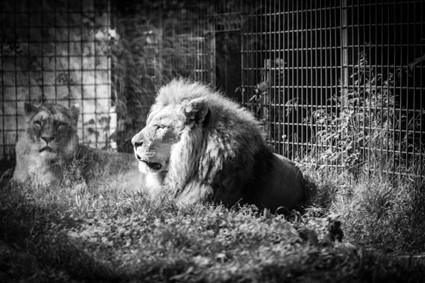
Frequently Asked Questions
Are lions only found in Africa?
When lion hunting Africa is the continent with the most wild lions, and only a small amount of other lions are found in India.
Is canned lion hunting illegal in South Africa?
At the moment, canned lion hunting is still legal in South Africa. However, the South African government is looking at closing down and phasing out this game hunting safari, but the wheels of politics roll slowly.
What is a canned lion?
A canned lion is an animal bred in captivity, on a game farm, and bred for hunting purposes.
Which African country has the most lions?
Tanzania is home to the most lions worldwide.
Where in South Africa will you find the most lions?
South Africa’s famous Kruger National Park is home to a large African lion population.
Why do people hunt lions in Africa?
As members of Africa’s Big 5 and Dangerous 7, the African lion is a sought-after game hunting trophy. They are hunted for their body parts, such as bones, claws, teeth, and hide, which are used in both traditional African medicine and the Asian market.
Deadlines and decisions: How near in the future do we need to look?
As of right now, there is no set deadline for the closure of this African hunting safari. When lion hunting Africa remains the destination of choice. The wheels within South Africa’s parliament turn slowly, and this almost leaves the industry in limbo. Plans need to be made and measures implemented, regardless of the government’s decision; should the industry be closed, these lions will need to be accounted for. And if the industry somehow remains operational, there is no doubt that the government will forge ahead with plans for national regulations and measures of control.
Captive lion hunting in South Africa has been an active operation for decades, and while a set deadline for decisions, challenges, and litigation will make the current situation clearer; it will also aid those parties involved who need to make challenging decisions that will certainly impact the lives and livelihood of both thousands of Africa’s great predators and an entire industry of people who have dedicated their lives to a practice many cannot accept, and many choose to support.
Author: A. Baker
